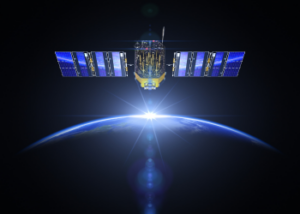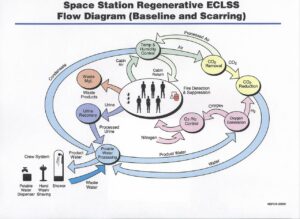Sustainable Space Initiatives:
Driving a Greener Future for the Space Industry
The space industry, with its rapid advancements and far-reaching impact, holds immense potential for driving positive change.
As we continue to push the boundaries of space technology, it is essential to consider the environmental footprint of our activities. Today, visionary scientists, engineers, and organizations are leading the way in developing sustainable space initiatives that promise to transform the entire space industry into a greener and more environmentally conscious sector.
Let’s explore some key areas where sustainability is shaping the future of the space industry.
Launch Systems and Propulsion
 Traditional rocket launch systems have relied on one-time use, resulting in significant waste and environmental impact.
Traditional rocket launch systems have relied on one-time use, resulting in significant waste and environmental impact.
However, sustainable space initiatives are revolutionizing this aspect of space travel.
Reusable rockets, such as SpaceX‘s Falcon 9 and Blue Origin‘s New Shepard, are being developed to land and be used for multiple launches, significantly reducing costs and waste. Electric propulsion systems, powered by solar energy or ion thrusters, are gaining popularity due to their higher fuel efficiency and lower emissions.
Moreover, researchers are exploring the use of biofuels derived from renewable sources, offering a greener alternative to conventional rocket fuels. These sustainable propulsion technologies not only minimize environmental impact but also open doors for more frequent and cost-effective space missions.
Satellite Design and Deployment
 The increasing number of satellites being deployed in space calls for sustainable practices to optimize resource utilization and minimize space debris.
The increasing number of satellites being deployed in space calls for sustainable practices to optimize resource utilization and minimize space debris.
Sustainable space initiatives are focusing on satellite design innovations, such as using lighter and more compact materials, which reduce the weight and size of satellites. By minimizing the mass of satellites, launch vehicles can carry more payloads, thereby reducing the number of launches required and lowering associated emissions.
In addition, efficient deployment strategies, including satellite clustering and constellation designs, are being explored to ensure optimal use of orbital space while minimizing the risk of collisions. These sustainable approaches to satellite design and deployment contribute to a more efficient and environmentally conscious space industry.
Space-Based Energy Solutions
 The vastness of space provides opportunities to harness abundant energy resources beyond Earth. Sustainable space initiatives are actively exploring space-based energy solutions to meet the increasing energy demands on Earth.
The vastness of space provides opportunities to harness abundant energy resources beyond Earth. Sustainable space initiatives are actively exploring space-based energy solutions to meet the increasing energy demands on Earth.
Space-based solar power (SBSP) is one such concept, involving the capture of solar energy in space using large solar arrays and transmitting it to Earth using microwaves or lasers. SBSP offers numerous advantages, including continuous power generation without weather limitations and the ability to provide energy to remote and inaccessible regions.
Furthermore, the utilization of lunar resources, such as helium-3 for fusion energy, presents promising prospects for sustainable and clean energy generation. These space-based energy solutions pave the way for a greener and more sustainable future for our planet.
Waste Management and Recycling

Space missions generate waste, and managing it in a resource-constrained environment is a critical challenge. Sustainable space initiatives are addressing this challenge through innovative waste management and recycling systems.
Closed-loop life support systems, inspired by ecosystems on Earth, aim to create self-sustaining environments where waste products are recycled, and resources are regenerated. By implementing efficient recycling processes, including water purification and air revitalization, space missions can minimize waste accumulation and reduce the need for continuous resupply from Earth.
Moreover, sustainable initiatives explore the utilization of in-situ resources, such as extracting water from lunar or Martian ice, to support life and reduce the dependency on Earth’s resources. These waste management and recycling practices contribute to long-duration missions, sustainable space colonization, and a more environmentally responsible space industry.
By prioritizing sustainability in launch systems, satellite design, space-based energy solutions, and waste management, the space industry can drive positive change and pave the way for a greener and more sustainable future.
These sustainable space initiatives not only mitigate the environmental impact of space activities but also open up new opportunities for innovation and collaboration in the pursuit of a sustainable cosmos.
Want to find out more about sustainability and the space sector? Click here.